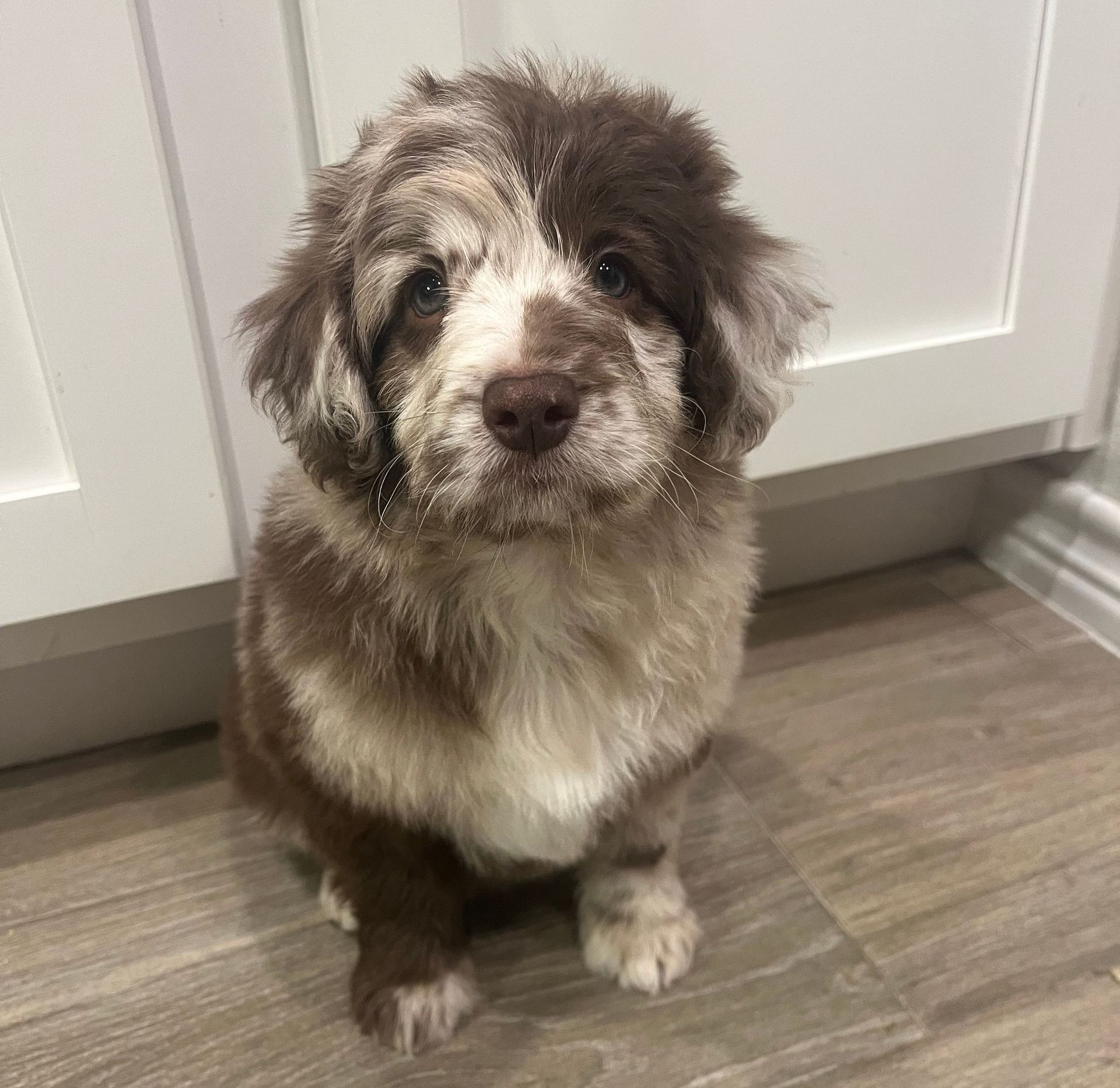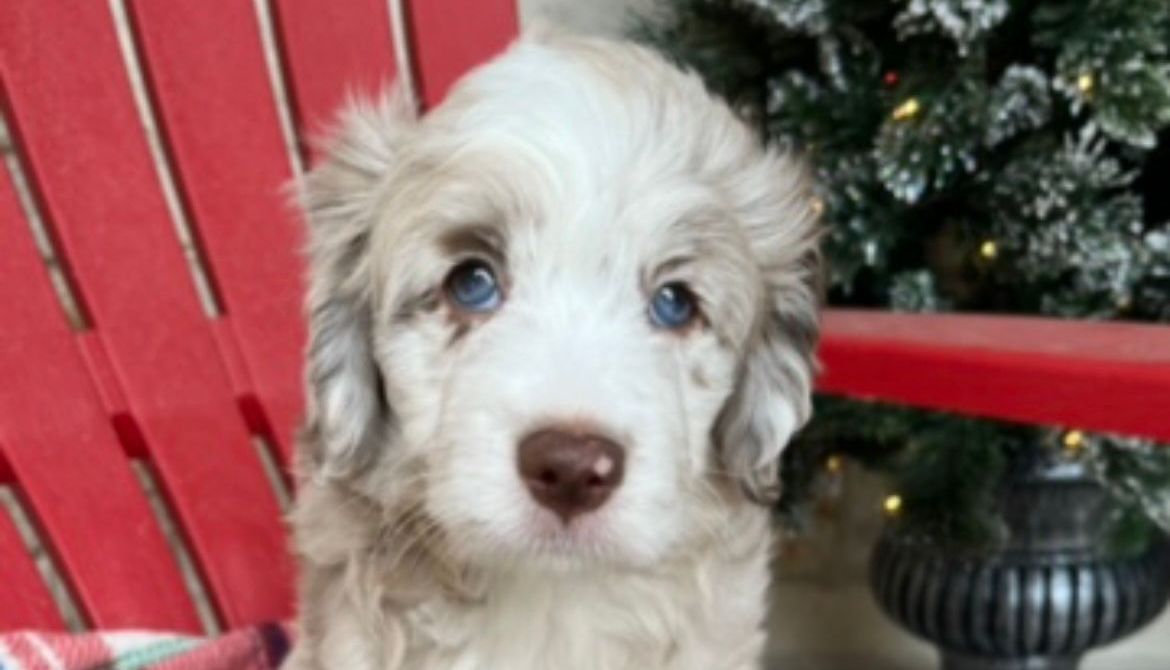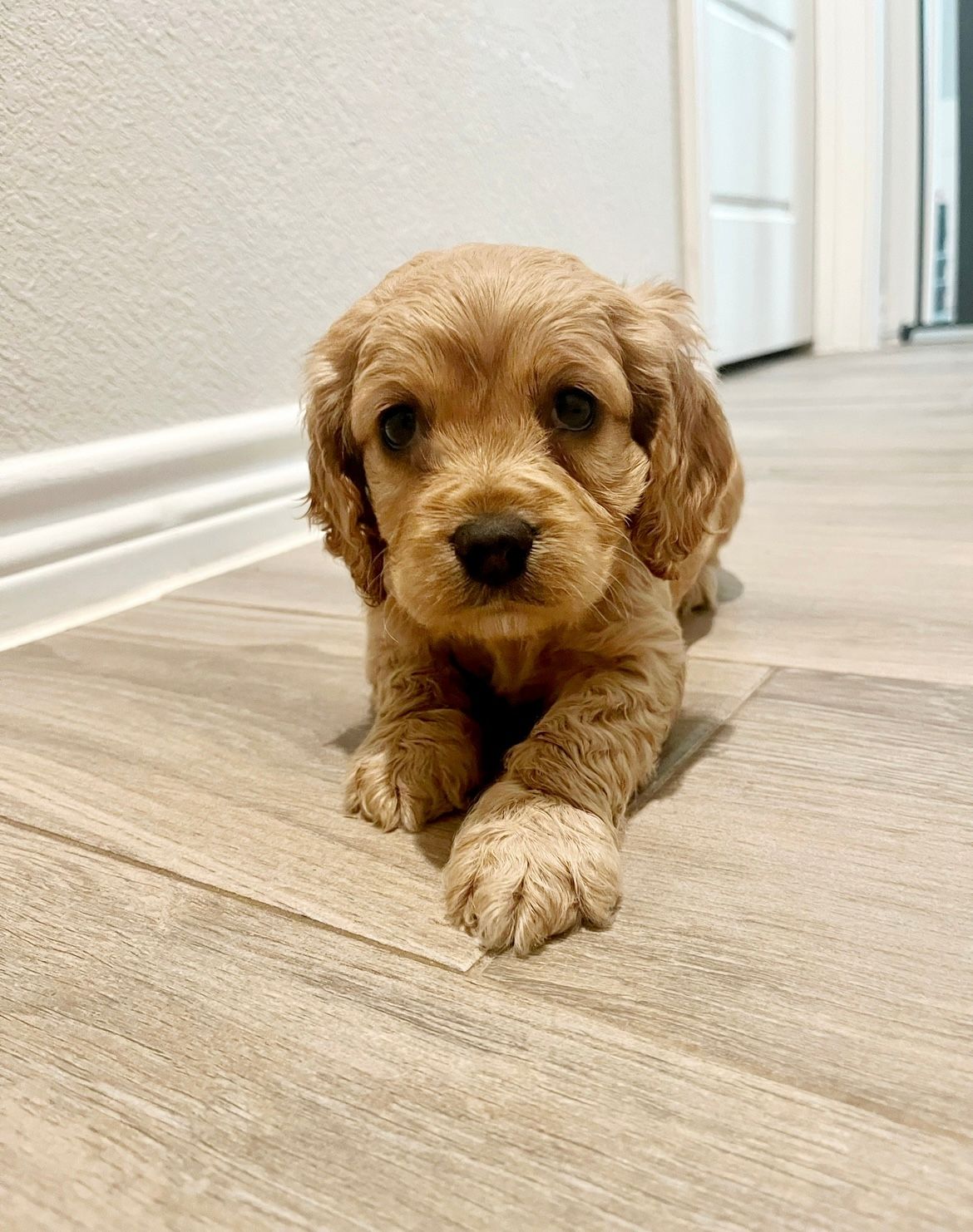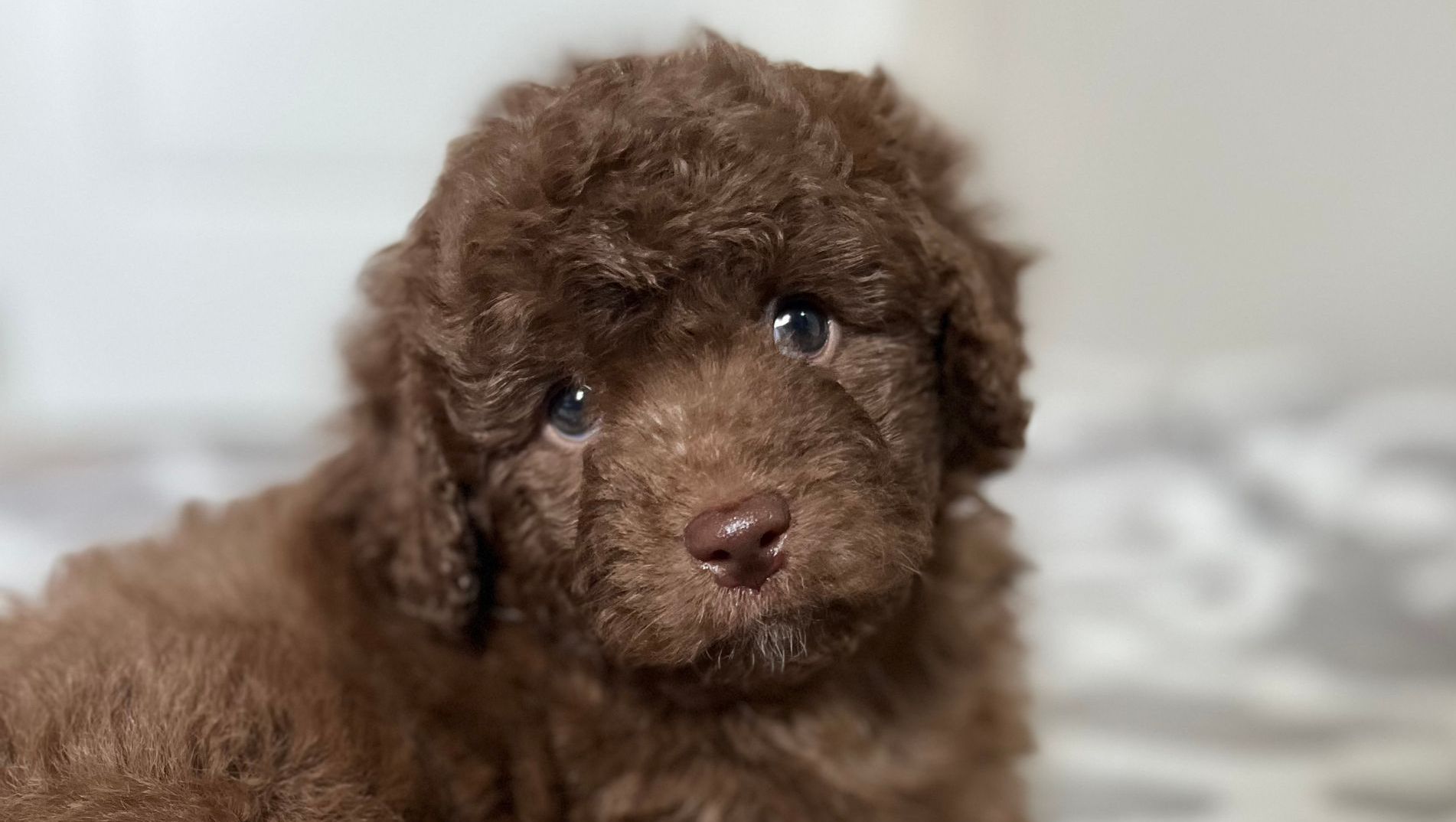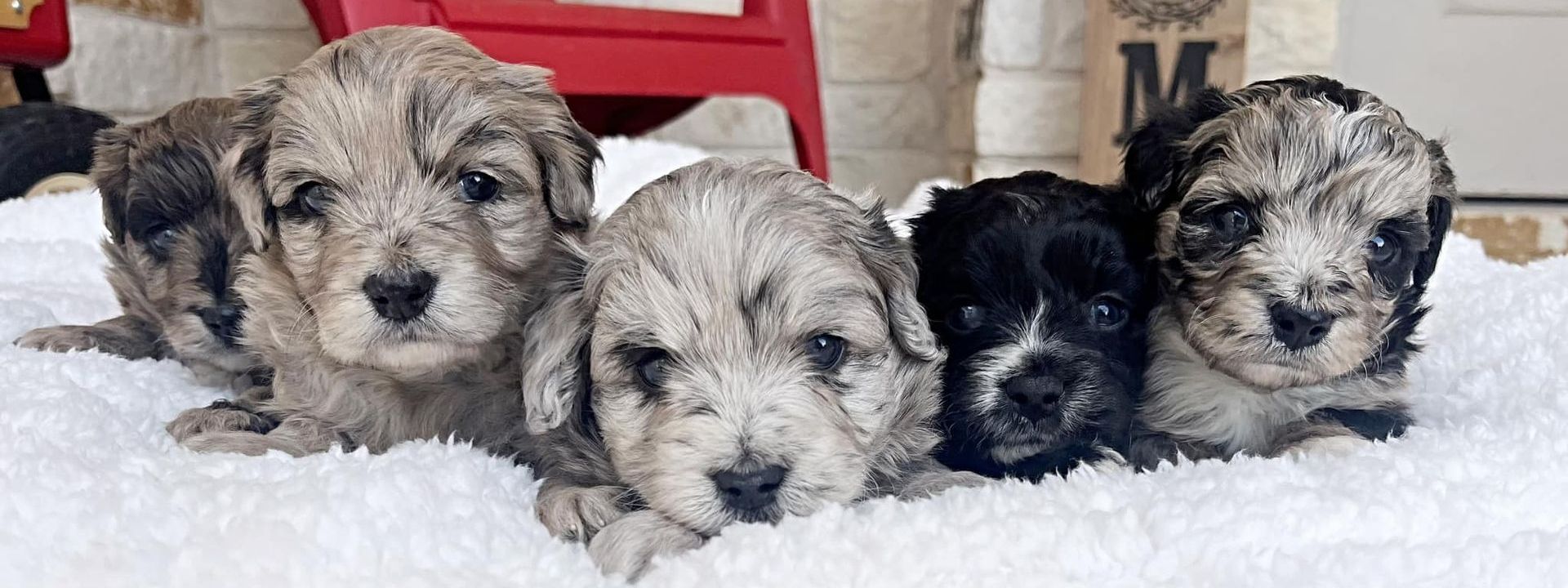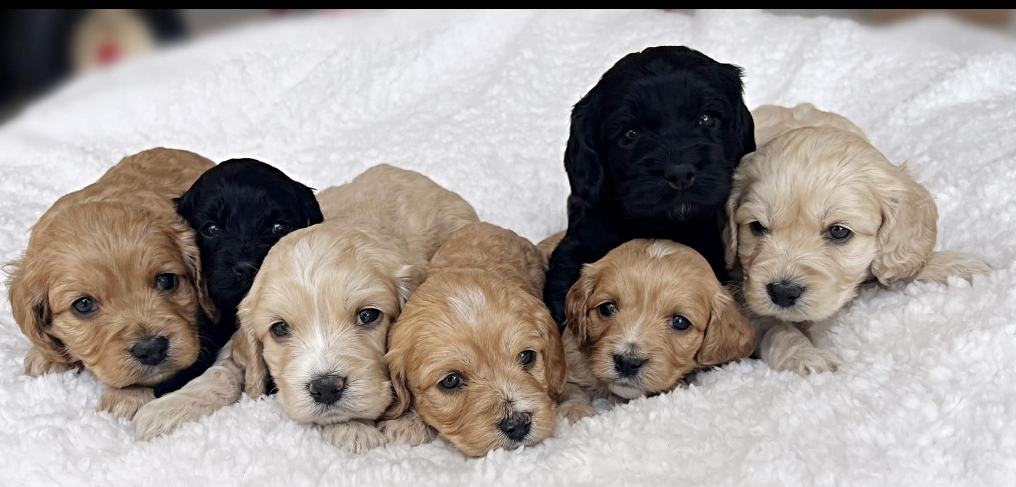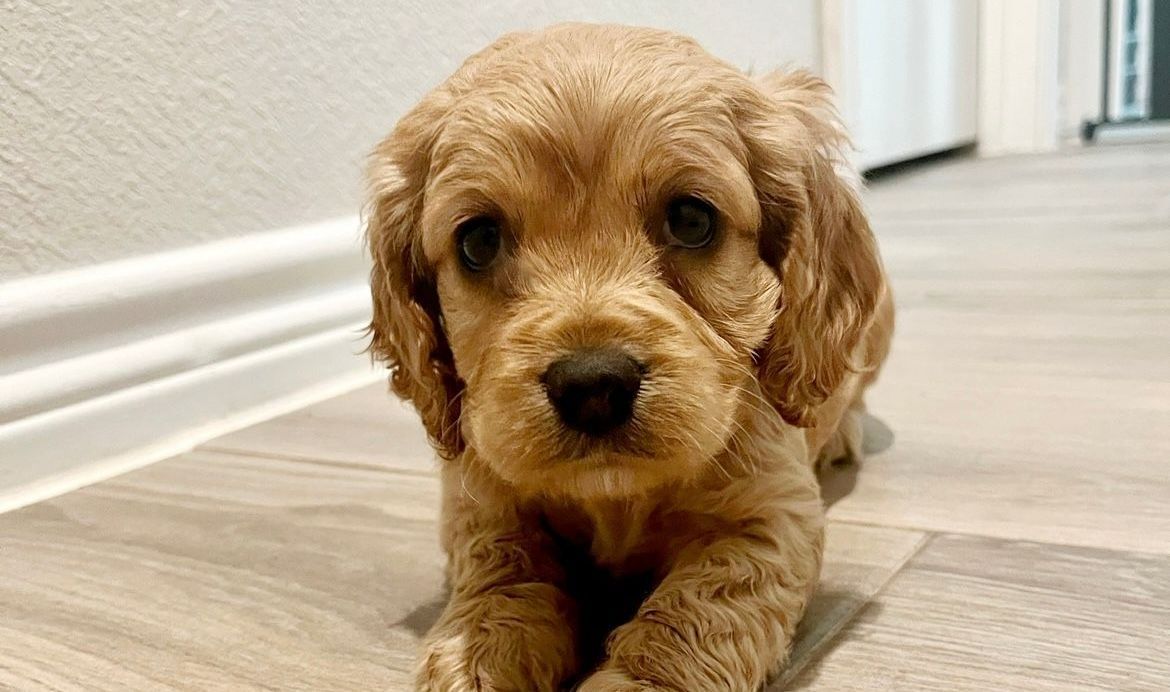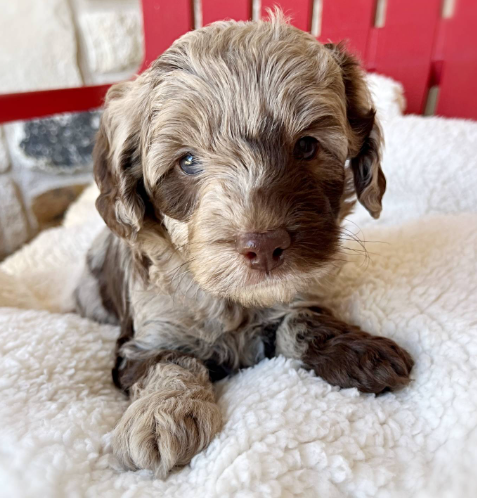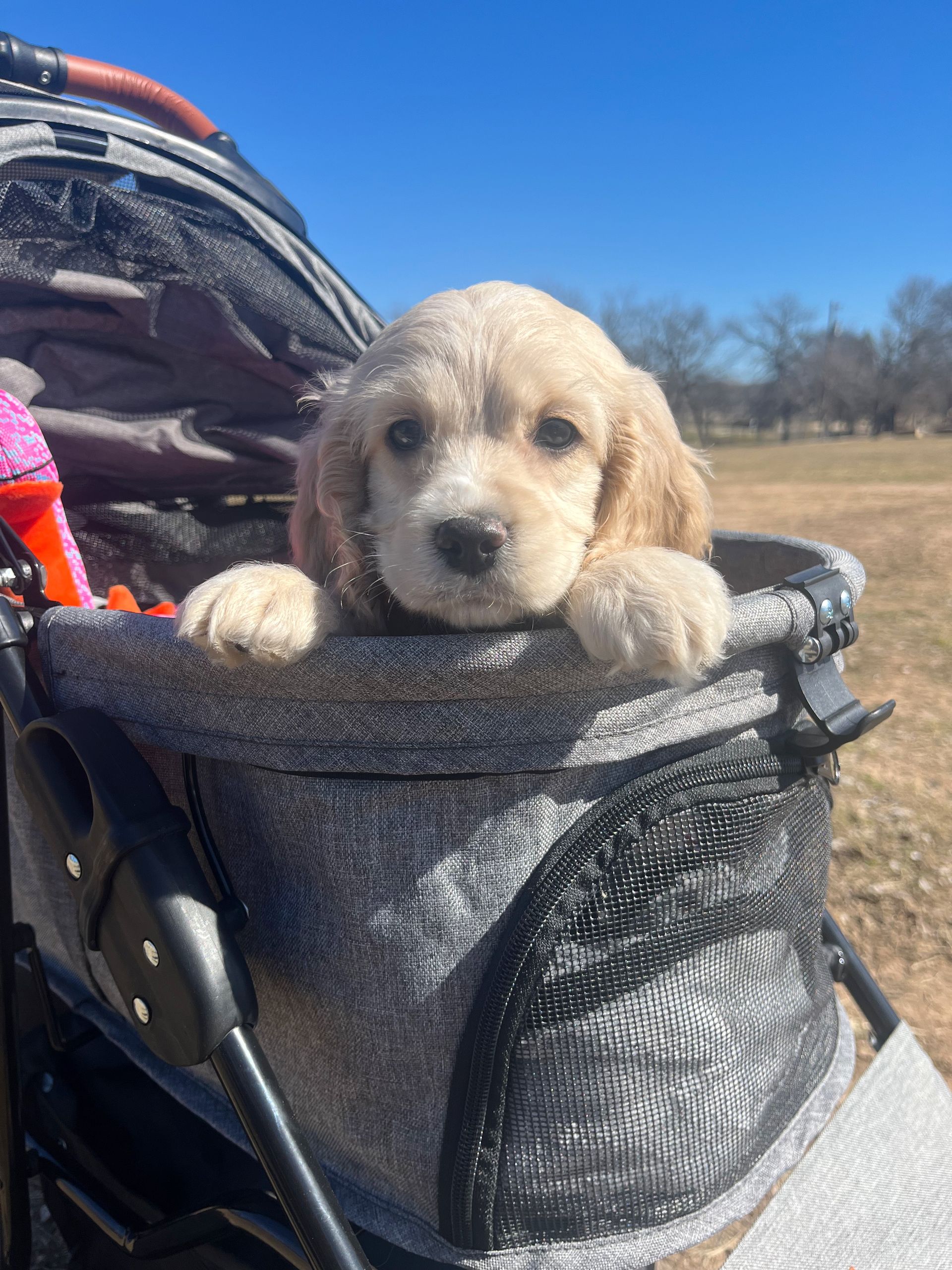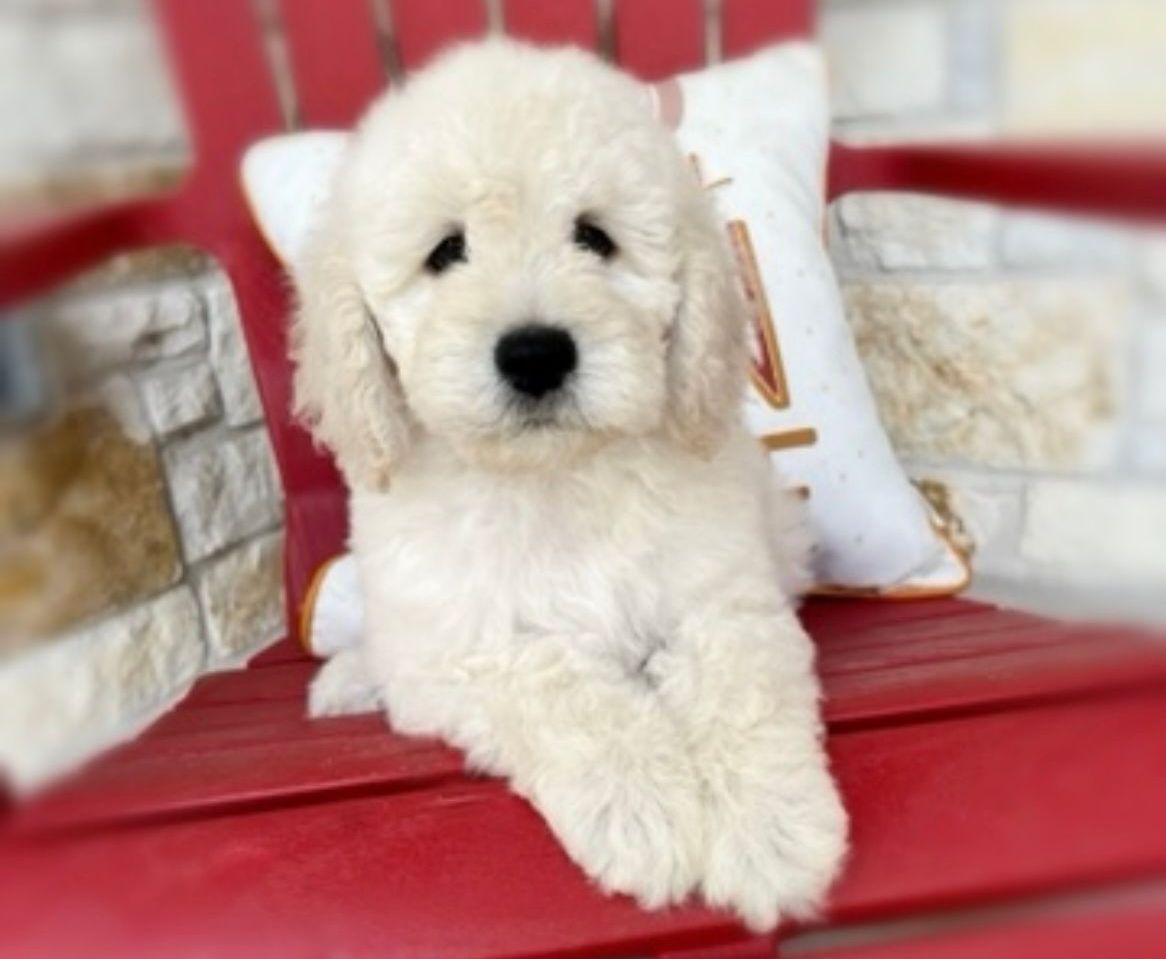About Goldendoodles
Goldendoodles are a popular hybrid breed that are a cross between a Golden Retriever and a Poodle. They are known for their friendly and outgoing personalities, as well as their intelligence and trainability.
Goldendoodles come in a variety of sizes, including miniature, medium, and standard, and they can have a range of coat types, from wavy to curly. Their coats are often low-shedding, making them a good choice for people with allergies.
In terms of exercise and activity level, Goldendoodles are highly energetic and love to play and run around. They are also very social and enjoy being around people, making them great family pets.
When it comes to training and obedience, Goldendoodles are highly intelligent and respond well to positive reinforcement methods. They are also eager to please their owners, which can make training easier.
Overall, Goldendoodles are a popular choice for people looking for a friendly, outgoing, and highly trainable dog. With proper training and socialization, they make great pets for families and individuals alike.
Hypoallergenic & Non-Shedding
Goldendoodles are often marketed as hypoallergenic and non-shedding dogs, which makes them a popular choice for people with allergies. However, it's important to note that no dog is truly hypoallergenic, as all dogs produce some amount of dander and saliva that can trigger allergies.
In general, Goldendoodles are considered low-shedding, which means that they produce less hair and dander than other breeds. This makes them a good choice for people with allergies, but it's important to spend time with a Goldendoodle before getting one to see if it triggers your allergies.
It's also worth noting that the coat type of a Goldendoodle can affect how hypoallergenic it is. Goldendoodles with curlier coats tend to be less allergenic than those with wavier or straighter coats. However, even Goldendoodles with curlier coats can still produce dander and saliva that may trigger allergies in some people.
Overall, while Goldendoodles are often marketed as hypoallergenic and non-shedding dogs, they are not completely allergen-free. If you are considering getting a Goldendoodle, it's important to spend time with one to see if it triggers your allergies before making a decision.
Attraction to Goldendoodles
There are many reasons why people are attracted to Goldendoodles. Here are some of the most common reasons:
- Personality: Goldendoodles are known for their friendly, social, and outgoing personalities, which make them great family pets. They are also highly intelligent and eager to please, making them easy to train.
- Coat: Goldendoodles have a unique and attractive coat that is a cross between the soft and curly hair of a Poodle and the longer and straighter hair of a Golden Retriever. Their coats come in a variety of colors and patterns and are often low-shedding, making them a good choice for people with allergies.
- Size: Goldendoodles come in a variety of sizes, including miniature, medium, and standard, which allows people to choose a size that best fits their lifestyle and living space.
- Activity level: Goldendoodles are highly energetic and love to play and run around, which makes them a great choice for people who are active and enjoy outdoor activities.
- Trainability: Goldendoodles are highly intelligent and respond well to positive reinforcement methods, making them easy to train and obedience.
Overall, the friendly and attractive personality, unique coat, size, activity level, and trainability of Goldendoodles make them a popular choice for many people. Whether you are looking for a companion, a family pet, or a new addition to your active lifestyle, a Goldendoodle may be the perfect choice for you.
Goldendoodle Sizes
Goldendoodles come in a variety of sizes, which can range from miniature to standard. The size of a Goldendoodle is determined by the size of the Poodle parent. Here are the most common sizes of Goldendoodles:
- Miniature Goldendoodles: Miniature Goldendoodles are usually between 14 and 17 inches tall and weigh between 15 and 30 pounds. They are the smallest of the Goldendoodle sizes and are a popular choice for apartment living or for people with limited space.
- Medium Goldendoodles:
Medium Goldendoodles are usually between 18 and 21 inches tall and weigh between 30 and 45 pounds. They are a good size for families with children and for people who want a medium-sized dog that is easy to handle.
- Standard Goldendoodles:
Standard Goldendoodles are usually over 21 inches tall and weigh over 45 pounds. They are the largest of the Goldendoodle sizes and are a popular choice for families with large living spaces and for people who are active and enjoy outdoor activities.
It's important to note that the weight and height of a Goldendoodle can vary based on the size of the Poodle parent and the size of the Golden Retriever parent. A Goldendoodle's size can also be influenced by its gender and genetics.
Overall, the size of a Goldendoodle is an important factor to consider when choosing a pet. You should choose a size that best fits your lifestyle and living space, as well as your personal preferences.
Goldendoodle Types
F1
An F1 Goldendoodle is the first generation of Goldendoodles, which are produced by breeding a purebred Golden Retriever with a purebred Poodle. This type of Goldendoodle is considered to be 50% Golden Retriever and 50% Poodle.
F1 Goldendoodles are known for their unique combination of the friendly, loyal, and affectionate personality of a Golden Retriever, combined with the intelligence and hypoallergenic coat of a Poodle. They are generally friendly, sociable, and good with children and other animals.
F1 Goldendoodles can come in a range of sizes, depending on the size of the Poodle parent, and they can have a variety of coat types, including curly, wavy, and straight. The coat of an F1 Goldendoodle can also range in color, depending on the genetic traits that they inherit from their parents.
It's important to note that F1 Goldendoodles may shed more than other types of Goldendoodles, such as F1b or F2, which are produced by breeding Goldendoodles with Poodles or other Goldendoodles. However, F1 Goldendoodles are still considered to be relatively low-shedding and hypoallergenic, compared to other breeds of dogs.
F1b
F1b Goldendoodles are a type of Goldendoodle that are produced by breeding an F1 Goldendoodle with a Poodle. The "b" in F1b stands for backcross, which refers to the process of breeding a crossbreed back to one of its purebred parents.
F1b Goldendoodles are considered to be 75% Poodle and 25% Golden Retriever, which makes them even more hypoallergenic and low-shedding than other types of Goldendoodles. They also tend to have curlier coats, which are less likely to shed and are less allergenic.
F1b Goldendoodles can come in a range of sizes, depending on the size of the Poodle parent, and they can have a variety of coat types and colors, depending on the genetic traits that they inherit from their parents. They are generally friendly, sociable, and good with children and other animals, just like other types of Goldendoodles.
Overall, F1b Goldendoodles are a popular choice for people who are looking for a hypoallergenic and low-shedding pet with a friendly and affectionate personality. If you are interested in getting an F1b Goldendoodle, it is important to choose a reputable breeder who can provide you with a healthy and well-socialized pet.
F2b
F2b Goldendoodles are a type of Goldendoodle that are produced by breeding an F2 Goldendoodle with a Poodle. The "b" in F2b stands for backcross, which refers to the process of breeding a crossbreed back to one of its purebred parents.
F2b Goldendoodles are considered to be 87.5% Poodle and 12.5% Golden Retriever, which makes them even more hypoallergenic and low-shedding than other types of Goldendoodles. They also tend to have curlier coats, which are less likely to shed and are less allergenic.
F2b Goldendoodles can come in a range of sizes, depending on the size of the Poodle parent, and they can have a variety of coat types and colors, depending on the genetic traits that they inherit from their parents. They are generally friendly, sociable, and good with children and other animals, just like other types of Goldendoodles.
Overall, F2b Goldendoodles are a popular choice for people who are looking for a hypoallergenic and low-shedding pet with a friendly and affectionate personality. If you are interested in getting an F2b Goldendoodle, it is important to choose a reputable breeder who can provide you with a healthy and well-socialized pet.
F3
F3 Goldendoodles are a type of Goldendoodle that are produced by breeding two F2 Goldendoodles together. F2 Goldendoodles, in turn, are produced by breeding two F1 Goldendoodles together.
The exact genetic makeup of an F3 Goldendoodle can vary, but they are generally considered to be a mix of Golden Retriever, Poodle, and Goldendoodle. They can range in size, coat type, and color, depending on the genetic traits that they inherit from their parents.
Like other types of Goldendoodles, F3 Goldendoodles are generally friendly, sociable, and good with children and other animals. They can also be hypoallergenic and low-shedding, depending on the genes that they inherit from their parents.
Coats
Goldendoodles come in a variety of types, which are determined by the type of coat they have. Here are the most common types of Goldendoodles:
- Fleece Coat: Fleece coats are soft and wavy, and they are similar in texture to a Poodle's coat. They are low-shedding and hypoallergenic, making them a good choice for people with allergies.
- Wool Coat:
Wool coats are curly and dense, and they are similar in texture to a Poodle's coat. They are low-shedding and hypoallergenic, making them a good choice for people with allergies.
- Hair Coat:
Hair coats are straighter and longer, and they are similar in texture to a Golden Retriever's coat. They are low-shedding but not as hypoallergenic as fleece or wool coats.
It's important to note that the type of coat a Goldendoodle has can affect its hypoallergenic qualities, as well as its grooming needs. Fleece and wool coats require more grooming than hair coats, as they need to be trimmed and brushed regularly to maintain their texture.
The type of coat a Goldendoodle has is determined by its genetics and can vary from dog to dog. Some Goldendoodles may have a combination of different coat types, such as a wavy fleece coat or a curly hair coat.
Overall, the type of coat a Goldendoodle has is an important factor to consider when choosing a pet. You should choose a type of coat that best fits your lifestyle, your personal preferences, and your ability to groom your pet regularly.
Genetic Variations
Goldendoodles are a mixed breed dog that is created by breeding a Golden Retriever with a Poodle. The genetic variations in Goldendoodles can occur as a result of the differences in the breeds that are used to create them.
- Coat Type:
The coat type of a Goldendoodle can vary based on the genetic traits of its parents. Some Goldendoodles may have a curly coat like a Poodle, while others may have a straighter coat like a Golden Retriever.
- Coat Color:
The coat color of a Goldendoodle can also vary based on the genetic traits of its parents. Goldendoodles can have a variety of coat colors, including cream, apricot, red, gold, black, silver, and chocolate.
- Size:
The size of a Goldendoodle can also vary based on the genetic traits of its parents. Some Goldendoodles may be smaller, like a Miniature Poodle, while others may be larger, like a Standard Poodle.
- Personality:
The personality of a Goldendoodle can also vary based on the genetic traits of its parents. Some Goldendoodles may be more energetic and playful, like a Golden Retriever, while others may be more calm and relaxed, like a Poodle.
Overall, the genetic variations in Goldendoodles can result in a wide range of coat types, coat colors, sizes, and personalities. It's important to research the genetic traits of the parents of a Goldendoodle before choosing a pet, to ensure that you are choosing a pet that is well-suited to your lifestyle and personal preferences.
